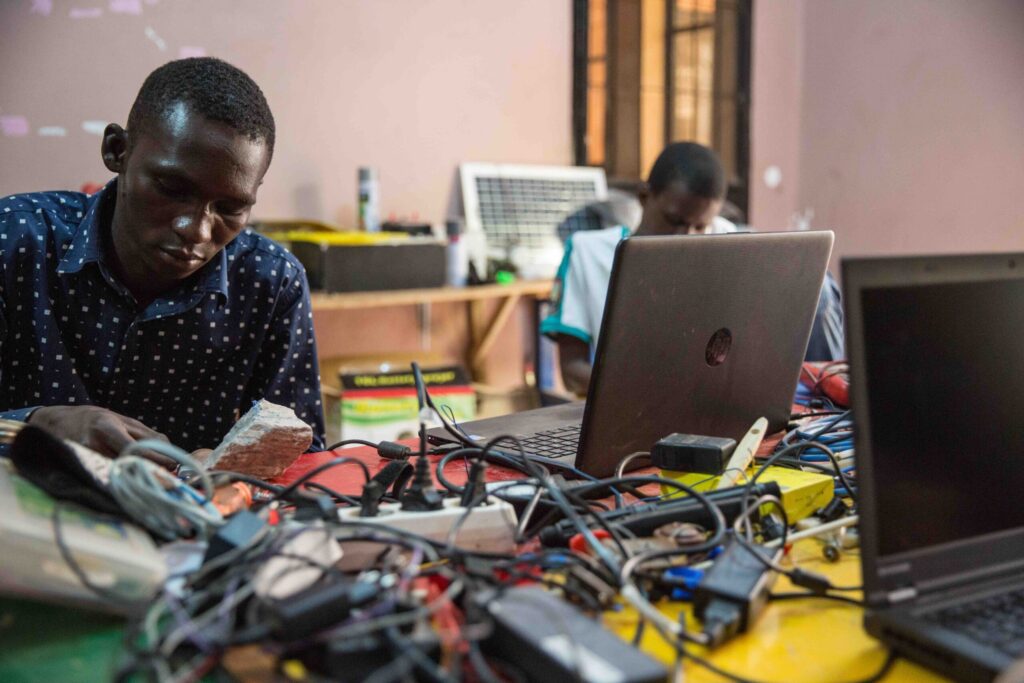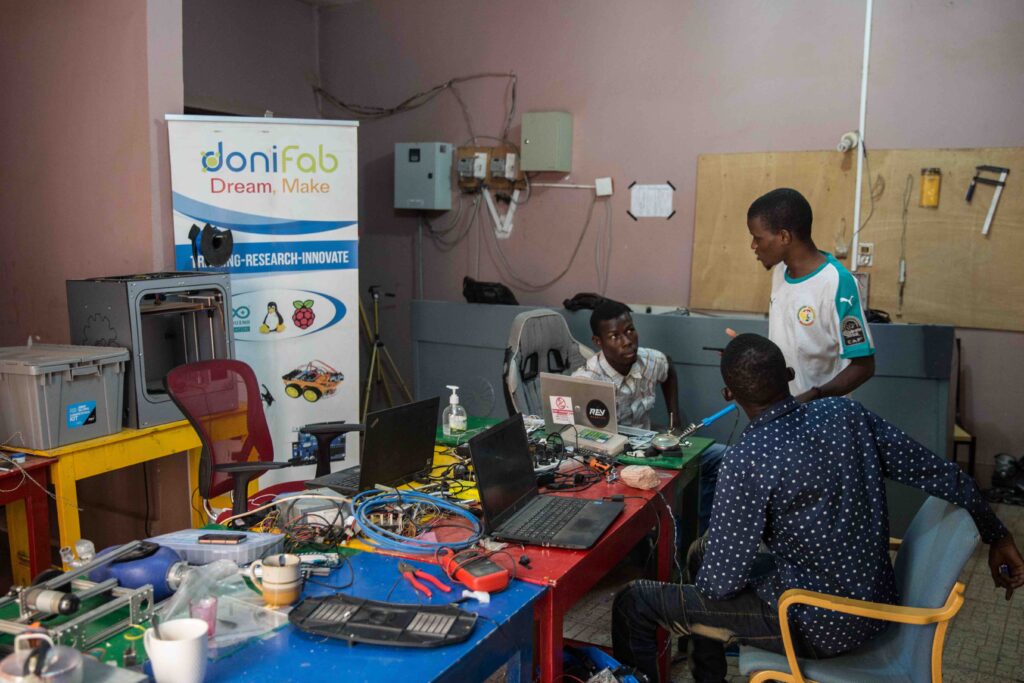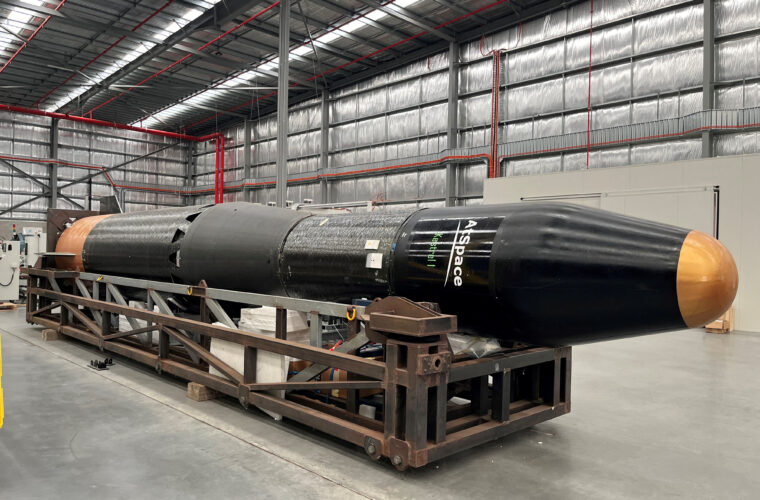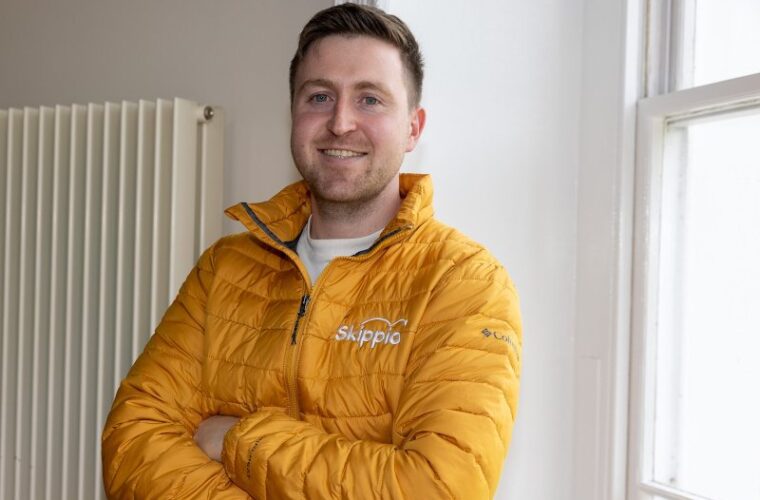Young Malians invent an artificial respirator, a chatbot and a collar to monitor cattle
Youssouf Sall works on so many projects at the same time that he has to sleep in his garage every other night. “Fortunately, my wife is understanding,” he laughs. The floor and table are full of tangled electrical cables, screwdrivers, coffee cups, dusty computers, drills and ammeters. In this residential neighborhood in Bamako, the capital of Mali, Youssouf, 30, and three of his friends: Foussine, Mohamed and Alpha, have set up a Fablab – a digital manufacturing laboratory that follows the charter laid down by the Massachusetts Institute of Technology (MIT) – in a garage, like any self-respecting inventor.
The project started in 2016 but really took off in March 2020, when the Covid-19 pandemic invaded the world. Africa was not spared. The Malian government quickly realized that with 56 respirators available for 19 million inhabitants, it would not be able to respond in case of a wave of serious cases. Several dozen respirators were then ordered from China but the international demand is so strong that they will not be delivered for months.

A home-made artificial respirator
“We have all been caught off guard by this virus,” says Youssouf. But very quickly we wondered how we, young entrepreneurs, programmers, electricians and engineers, could use our skills to save lives.” The young team then began to develop a prototype of an artificial respirator to fill the shortage.
The rudimentary prototype relies on a mechanism based on a manual insufflator. “It can replace the hand of the nurse or ambulance driver, but it’s not yet a ventilator per se,” explains Youssouf. It can help a patient who needs supplemental oxygen to stabilize, but it’s not enough if the patient is in a critical condition.
Thanks to the support of their mentor, Dr. Tidiane Ball, the small team presents its machine to doctors at Point G public hospital, Mali’s largest. “The doctors helped us to overcome the challenges to transform our insufflator into a real ventilator,” Youssouf says. Our machine has to meet several parameters, from breathing rate to plateau time, pressure and the amount of air sent. A ventilator has to be accurate. It has to respect cycles. A person’s life depends on it. Some patients need more pressure or less speed than others, for instance”.
Chatbot against the Covid-19 and automatic hand washing station
Currently, the project is awaiting medical approval. A long and complex process that requires a lot of patience from the small team of hyperactive inventors, which they don’t have. They are therefore planning other projects to fight the pandemic: a mobile application called Zimblin that provides voice messages in Bambara, one of Mali’s national languages. It reminds people of barrier gestures and communicates the latest statistics on the evolution of the pandemic based on data from Johns Hopkins University.
They also create a chatbot, a conversational program that answers questions from Internet users via WhatsApp messaging. “You can ask what is the difference between Covid-19 and coronaviruses, what are the routes of transmission, symptoms, instructions to follow, etc.,” Youssouf says. In one month, the chatbot answered 37’000 messages.
Then, they built a handwashing device for public spaces. Equipped with a photocell, it activates taps and soap without having to touch the object. They also developed a spray gantry to decontaminate clothing, and a remote-controlled spray robot that can pulverize chambers with disinfectant solution.
From the garage to the factory
After a few months of development, the four friends focus their efforts on the most promising projects. “The handwashing device has generated the most interest, especially in the support structures,” Youssouf says. We perfected it for months. Before we had to solder the motherboard by hand, now we have delegated this task to a Chinese company in order to have an industrial quality”. The young Fablab team will be able to speed up production and reduce price, from 80,000 CFA ($147) per unit to 60,000 CFA ($111).

The project has attracted international attention, including that of the Danish Embassy’s Support Fund for the Creation of Enterprises by Young People (FACEJ), supported by the NGO Swiss Contact. They offered them a grant of 5 million CFA to get the project off the ground. Youssouf and his friends hope to produce dozens of units and become profitable in the coming months.
In order to professionalize this approach, they created a company in September: BKO technologies. Its goal is to produce consumer electronic devices. After this cleaning terminal, the team plans to develop an incubator for hens’ eggs. The machine will automatically regulate the temperature and ventilation during the incubation phase until the chicks hatch.
Livestock: a Malian treasure to be monitored
The creativity of these young inventors does not stop here. “We are going to launch Ewaati, a company that will create biometric time clocks to digitize employee timekeeping,” explains Youssouf. The team also plans to launch Kodol, a project to monitor livestock. “We have designed the prototype of a collar equipped with a chip that will allow breeders to track the movements of their herds as well as their physiological state”. The system will send alerts on smartphones in the case of above-average sedentarization (meaning an injured, tired or sick animal), or in case of high temperature,” continues the enthusiastic young inventor.
There is no doubt that in Mali, where livestock is considered the country’s primary economic resource and where cow theft is a very common activity, this invention will be successful.



